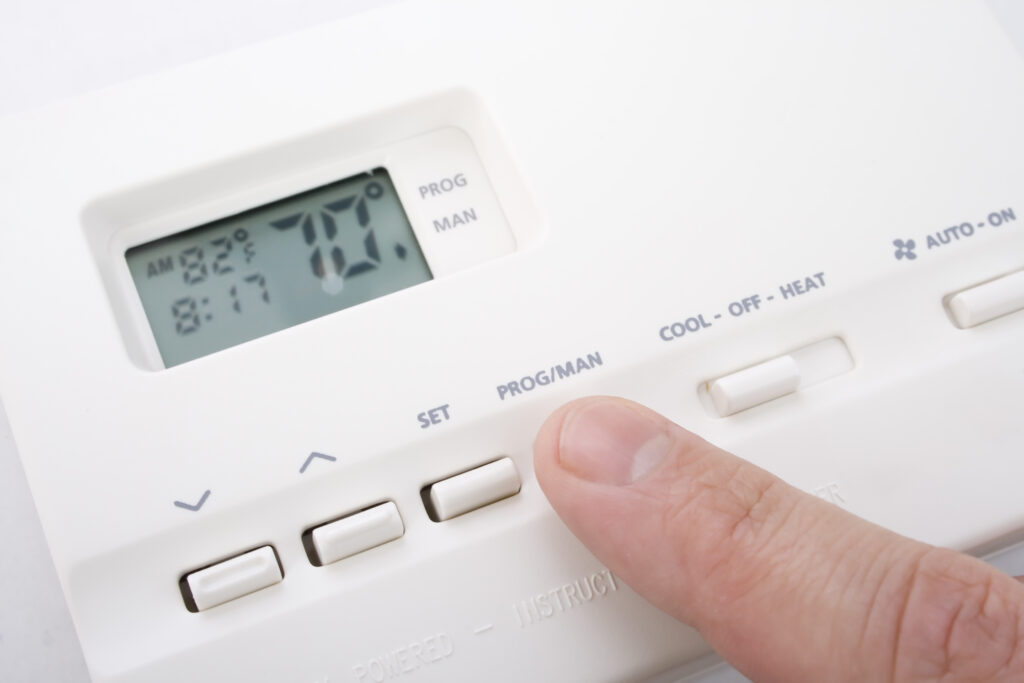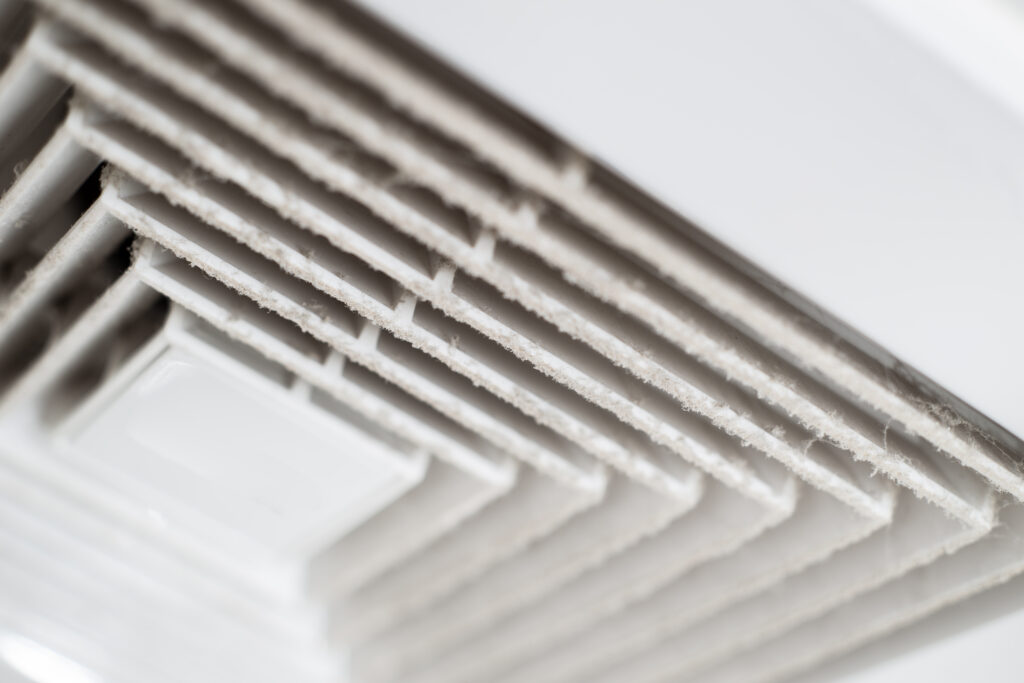Brevard's Trusted AC & Plumbing Pros
Brevard's Trusted AC & Plumbing Pros
HVAC is an acronym for Heating, Ventilation and Air Conditioning. HVAC is most often used to depict the whole heating and cooling system consisting of the duct work, air filters, humidification controls, and registers.
The most critical part of HVAC maintenance is maintaining unrestricted air flows. Dust, dirt, and debris are an HVAC system’s worst offenders. You should keep all filters clean and heat exchangers and coils free of debris collection and restrictions. We recommend that you change your filter regularly and only use high quality filters. Click here to learn more about high quality HEPA filters from American Air and Plumbing.
We also recommend that your heating and cooling system be included in our annual HVAC Maintenance Program. Click here to learn more about AC Maintenance from American Air and Plumbing.

Warranties vary depending on manufacturers and licensed AC professionals that install them. Click here to learn more about our 10-Year Parts AND LABOR warranty.
Locate the label on the outer surface of the equipment for a manufacture date. If the equipment is less than five years old, it should have a warranty. Warranty terms and conditions change by manufacturer and the installing company. American Air & Heat can help you verify the warranty status of your heating and cooling system.
Does your AC make strange noises? Is it cooling or heating all areas of your home adequately or taking longer to cool down or heat up? Have your utility bills been rising in spite of no rate increases from the power company? These are signs that you may have an AC problem that needs service. Keep in mind, the longer you delay, the worse any underlying problems will get. So contact American Air & Heat to check out your AC system whenever you notice anything unusual.
Bigger doesn’t mean better to get the performance and efficiency that count. Having a unit too small will stress the system and provide inadequate comfort. Having a unit that is too big for your home will cause the unit to come on and cool the house rapidly while drawing a lot of power. This quick cycling process draws more energy than would be used under the regular operation of an appropriately sized unit. The system on start-up takes about 5 minutes of operation to achieve full capacity and efficiency. Short cycling also does not allow the system to dehumidify properly.
Before you replace your AC system, make sure your system is sized properly to match your needs and budget. American Air & Plumbing can help. We will thoroughly analyze your home and comfort requirements to determine the proper size and system.
Here are three tips to help get the most value from your AC:
Spraying air fresheners or lighting candles only mask odors. They don’t get rid of them because the order source is still there. From decades of experience, we know that bacteria, dust mites, animal dander, cat saliva and mold may be at the root of the problem. One method to sanitize the air is installing germicidal (UV) lights in your home AC system. UV-C helps kill odors and inhibit the growth of biological contaminants, sterilizing surfaces and flowing air in the HVAC system. Click here to learn more about AC UV-C Germicidal systems from American Air and Plumbing.
We also recommend that you only use high quality HEPA filters in your AC system. Click here to learn more about high quality HEPA filters from American Air and Plumbing.
According to EPA studies, exposure to air pollutants indoors can be 100 times greater than outdoors. While frequent dusting and vacuuming can help reduce the amount of dust and dust mites, not all airborne contaminants can be eliminated. High quality HEPA filters can help eliminate particles that are too small to be caught by a vacuum. UV-C germicidal light systems are an excellent choice to fight mold, mildew, allergens, bacteria and even viruses in your indoor air. Call American Air & Plumbing to learn about purifying the air in your home. Click here to learn more about high quality HEPA filters from American Air and Plumbing.
Click here to learn more about AC UV-C Germicidal systems from American Air and Plumbing.
Thermostat temperature settings depend on the time of year and your personal comfort preferences. During the summer, the temperature setting on average is 75°-80°. During the winter months, 68°-72° is the average. For homes with programmable thermostats, avoid setting drastic temperature changes. To keep your system from working harder than necessary, do not set a temperature differential of more than 3 to 5 degrees.
For Florida home systems, we recommend changing filters monthly. During the high-use seasons, it’s better to check more often. If you have a disposable filter, just replace it. Don’t attempt to clean it. Some high efficiency air filters can last up to three months.
The optimum indoor range is 35 to 50% relative humidity, but 40 to 45% is a more realistic goal for most homes. With humidity above this level, you will likely get condensation on the windows which can breed mold. Mold inside homes can lead to allergy and respiratory problems.
Like most high value products in your home, you want to preserve your investment. HVAC equipment, especially here in Florida, needs proper care to provide the greatest performance and lifespan. Trained technicians from American Air & Plumbing has Maintenance Programs to help avoid repairs and ensure your system is working at its top level. Click here to learn more about AC Maintenance from American Air and Plumbing.
There are many reasons that affect the energy use of your AC system. These include:
The AUTO setting works best. For central Florida, we don’t recommend constant ON fan operation year-round except during December through March to keep the indoor air better filtered when humidity levels are low.
You shouldn’t close more than one register in your home. Closing off or even adding coverings registers will not save you energy because they still will have heat gain from the outside. This heat gain is transferred to the rest of the house through doors, walls, and ceilings causing your AC to work just as hard as if all the registers were open.
What is the difference between Gas Heat and Heat Pump?
A gas heat furnace typically uses natural gas or propane to create a flame that heats metal heat exchanger plates, inside the furnace. Air from the home is then blown over these hot heat exchangers and is then returned as warm air to the house through ducts.
A heat pump does not use gas and is simply an air conditioner running in reverse. To supply warm air, the unit reverses the normal refrigeration cycle and transfers heat from the outdoor air to the inside of the house through the refrigeration inside the system.

SEER is an acronym for Seasonal Energy Efficiency Ratio. It is an energy efficiency rating for air conditioning units. The higher the SEER rating, the more efficient a unit is. For example, older units used to have a SEER rating of 6-10, new units today must have a minimum SEER rating of 13, and the most efficient systems available today are about 19 SEER.
For systems in Florida homes, the bare minimum for proper filter maintenance is at least yearly but this may need to increase during the hottest season. If you do not change your filter at regular intervals, your indoor coil could become clogged, which could then cause your condensate drain to clog and flood your mechanical room. American Air & Plumbing performs this cleaning during our maintenance tune-up. Click here to learn more about AC Maintenance from American Air and Plumbing.
Undersized ductwork (which is what most homes have) can significantly reduce airflow and can damage the compressor in the outdoor unit. Undersized ducts will also increase noise due to the increased air velocities inside the duct. Undersized ductwork will decrease the volume of air that can be delivered to each room, therefore reducing the comfort of the home.
The refrigerant in your system should never have to be changed. Refrigerant is not like oil in a car. It only has to be replaced if it becomes contaminated from an outside source or your system has developed a leak and needs to be inspected and/or repaired. Click here to learn more about AC Repair from American Air and Plumbing.
Variable speed refers to an indoor AC motor that changes speed. This type of motor increases speed and airflow from start-up to full capacity over 8 minutes. This results in a quieter start-up and shut down of the system. This motor is also about five times more efficient than a conventional indoor fan motor.
Air conditioning units are sized in tons. One ton is equal to 12,000 BTU’s of total capacity. An example: a 4-ton air conditioning unit has a full capacity of 48,000 BTU’s and a 2-ton machine only has a total capacity of 24,000 BTU’s.
Words from Satisfied Customers
Hear straight from our customers on why they only trust American Air & Plumbing for all their AC repair, maintenance, and installation needs.
 Tammy Weeks2023-08-22Our emergency service call was handled immediately. Our service rep, Anthony was very professional, polite & very knowledgeable. Great experience!
Tammy Weeks2023-08-22Our emergency service call was handled immediately. Our service rep, Anthony was very professional, polite & very knowledgeable. Great experience! Deborah Shipton2023-08-22Responds quickly to your issues which is wonderful considering our recent heat
Deborah Shipton2023-08-22Responds quickly to your issues which is wonderful considering our recent heat William Jacobson2023-08-17Given tips to check a/c during call. Technician arrived on time, very professional and thorough
William Jacobson2023-08-17Given tips to check a/c during call. Technician arrived on time, very professional and thorough Damon Pullias2023-08-16Bill diagnosed the problem and had my a/c back up and running in no time. First class experience all the way!
Damon Pullias2023-08-16Bill diagnosed the problem and had my a/c back up and running in no time. First class experience all the way! jack Fitzgerald2023-08-16Professional, explain in detail on what my options are. On time and would recommend the work they do.
jack Fitzgerald2023-08-16Professional, explain in detail on what my options are. On time and would recommend the work they do. Lawrence Shneyder2023-08-15Peter came out and fixed our problem, and got us cooling before the heat set in!
Lawrence Shneyder2023-08-15Peter came out and fixed our problem, and got us cooling before the heat set in! Judie Dagostino2023-08-15Bill was courteous and professional
Judie Dagostino2023-08-15Bill was courteous and professional Mike Richards2023-08-15We had our AC go out over night. Called American Air and Plumbing first thing in the morning. They were able to get us in that very day. So very grateful for them doing this. Ryan came out and was able to fix the issue within an hour. Very nice young man, professional and responsive to our needs. This is a company that I will be giving my business to again. Thank you.
Mike Richards2023-08-15We had our AC go out over night. Called American Air and Plumbing first thing in the morning. They were able to get us in that very day. So very grateful for them doing this. Ryan came out and was able to fix the issue within an hour. Very nice young man, professional and responsive to our needs. This is a company that I will be giving my business to again. Thank you.















